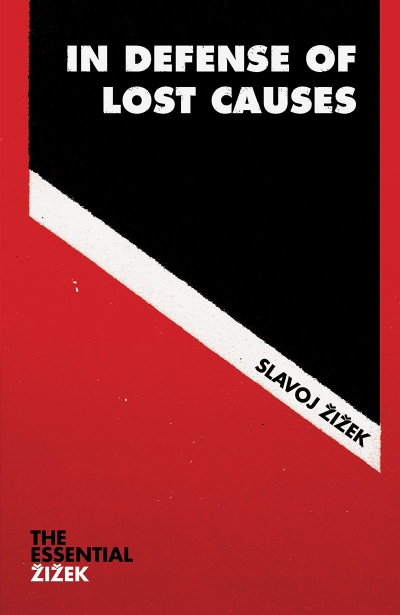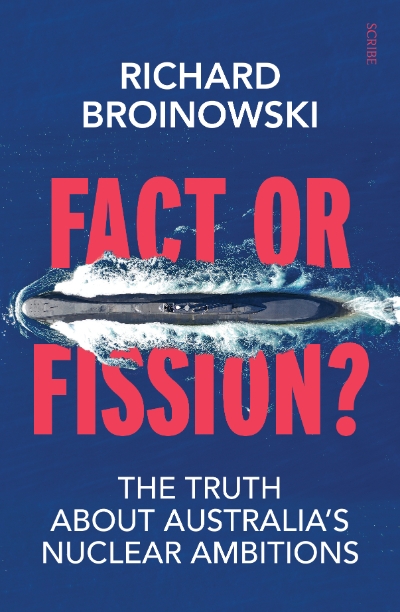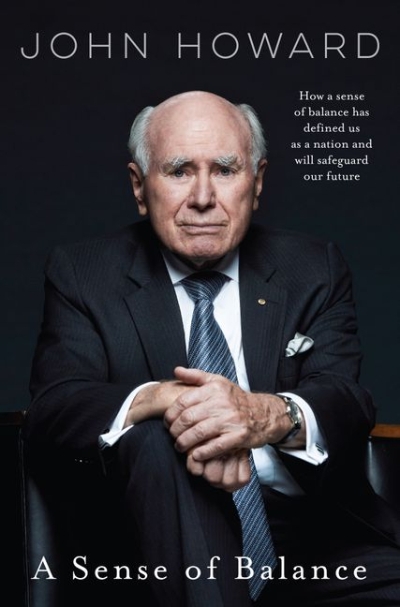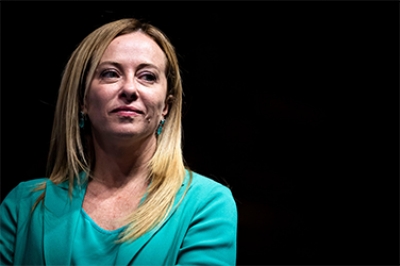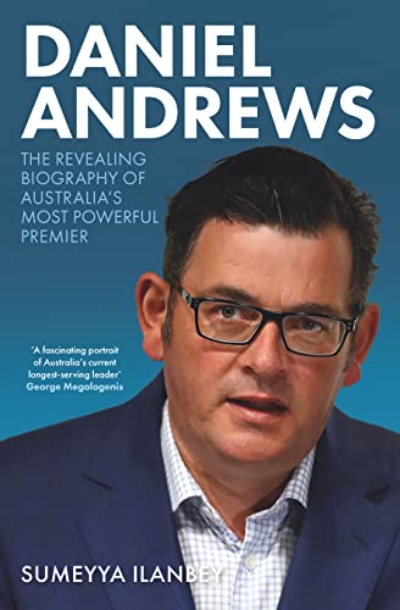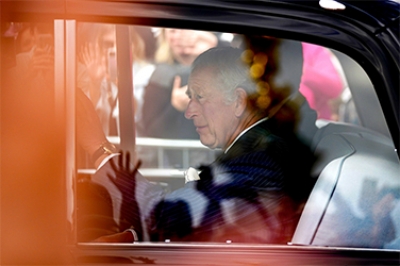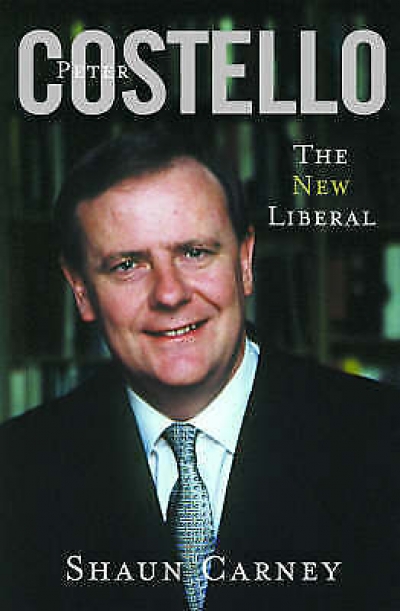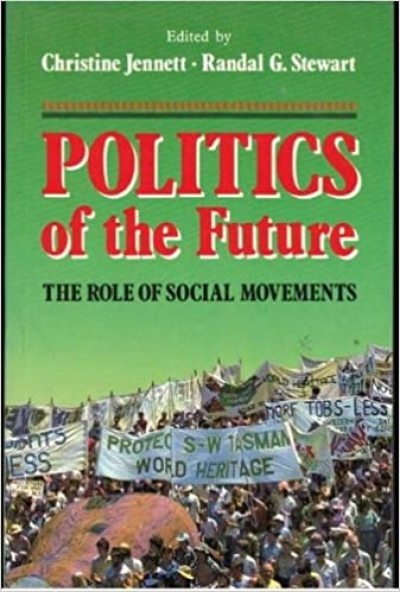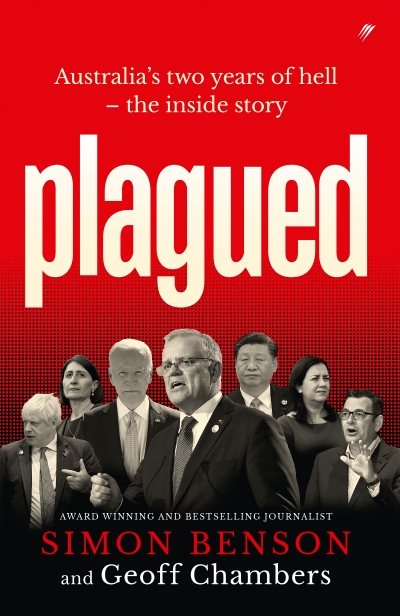Politics
In Defense of Lost Causes by Slavoj Žižek & First as Tragedy, Then as Farce by Slavoj Žižek
In the chapter ‘Revolutionary Terror’ in In Defense of Lost Causes (2008), world-renowned Lacanian theorist Slavoj Žižek briefly discusses Georgi M. Derluguian’s Bourdieu’s Secret Admirer in the Caucasus (2005). Derluguian’s book traces the extraordinary career of one Musa Shanib, from Abkhazia on the Black Sea, who moved from being a Soviet dissident to a democratic political reformer and, finally, a Muslim fundamentalist, all the while maintaining an unwavering intellectual loyalty to the great French sociologist Pierre Bourdieu.
... (read more)Fact or Fission: The truth about Australia’s nuclear ambitions by Richard Broinowski
On 15 September 2021, Scott Morrison announced his government’s commitment to a defence pact and nuclear submarine deal with the United Kingdom and United States. Abbreviated to AUKUS, this collaboration sent shockwaves through ranks of diplomats, security analysts, anti-nuclear advocates, and members of the Australian public. In signing the AUKUS pact, Morrison signalled Australia’s termination of a $90 billion submarine deal with the French government and reignited concern over Australia’s role in fuelling nuclear proliferation and potential conflict. Drawing upon ‘insider’ knowledge as a former diplomat, Richard Broinowski has contributed to the discussion by placing AUKUS in its historical context in an updated edition of his book Fact or Fission? The truth about Australia’s nuclear ambitions, originally published in 2003.
... (read more)Since his (involuntary) retirement from politics in 2007, John Howard has gone to some lengths to encourage comparisons with Robert Menzies. He authored a lengthy paean to Australia’s longest serving prime minister (2014), appeared in a television series to appraise his leadership and era (2016), and curated an exhibition on him at the Museum of Australian Democracy. And while he does not don the knightly robes that Menzies did on the cover of his volume of essays, The Measure of the Years (1970), Howard does ape Ming’s serene, far-seeing gaze on the dust jacket of this, his third book, A Sense of Balance.
... (read more)In 1994, Italian photographer Massimo Vitali, seeking to understand the Italy which had swept Silvio Berlusconi’s Forza Italia (FI) comprehensively into power, took his camera to the beach at Marina di Pietrasanta ‘to see who the Italians were … [and] to understand their attitudes … at that precise moment in history’. In 2022, Italian politics returns to the beaches for a campagna balneare (a seaside campaign) conducted in a summer atmosphere of crisis when most Italians are taking their annual vacation.
... (read more)Daniel Andrews: The revealing biography of Australia’s most powerful premier by Sumeyya Ilanbey
During his first electoral campaign, Daniel Andrews hung a sign in his office containing a timeless political wisdom from Lyndon Baines Johnson: ‘If you do everything, you will win.’ He has continued taking it literally. Australian politics has, it is agreed, few harder workers than Victoria’s premier: he is in the same class as LBJ, who famously said that he seldom thought about politics more than eighteen hours a day.
... (read more)Has anyone else been chuckling upon hearing the words ‘Charles III, king of Australia’? In my household, the movie Anchorman is a sacred text, and its buffoonish 1970s news anchor protagonist Ron Burgundy is our holy fool. So devoted is our fandom that we own the Anchorman out-takes DVD. In one scene that was cut, the ambitious and glamorous television journalist Veronica Corningstone confides to Burgundy that she dreams of being the first female network news anchor.
... (read more)Selling books is a difficult business. Publishing, too. Booksellers and publishers need courage and imagination. A book about a contemporary Federal politician with the adjective ‘new’ in the title displays both these qualities. Tony Blair may have got away with ‘New Labour’ in Britain. In Australia, a large part of the disenchantment with politics and politicians stems from the feeling that, apart from the fresh face of Natasha Stott-Despoja, there’s nothing new around; no new ideas, no articulated vision of where the country might be in ten- or twenty-years’ time, nothing inspirational. Perhaps something might emerge before the next election. But no one’s holding their breath.
... (read more)The most imaginative, although in all probability the least politically effective, of the campaign badges produced for the current Australian elections is the ALP Badge, ‘the light on the hill’. The badge, a simple cloisonne in blue and red with gold wire, symbolises the hopes of that great Australian, J.B. Chifley.
... (read more)The Politics of the Future: The role of social movements by Christine Jennett and Randal G. Stewart
Twenty years ago there was a fashion in American political science of putting together collections of articles under a generic title such as ‘Political Parties in Developing Nations’. As with so many other American fashions, this spread to Australia and the edited collection is now commonplace in the social sciences. The problem with all such collections, and it applies to this one, is the apples and pears syndrome – not all fruits are the same despite their common classification.
... (read more)Plagued: Australia’s two years of hell – the inside story by Simon Benson and Geoff Chambers
Scott Morrison needn’t waste time writing a political memoir: the work of self-vindication has already been attempted on his behalf by Simon Benson and Geoff Chambers, both columnists at The Australian, in their now highly controversial book Plagued: Australia’s two years of hell – the inside story. Theirs is a largely heroic story about Morrison’s leadership, which ‘served the nation well’ amid a ‘most extreme period of adversity’.
... (read more)

